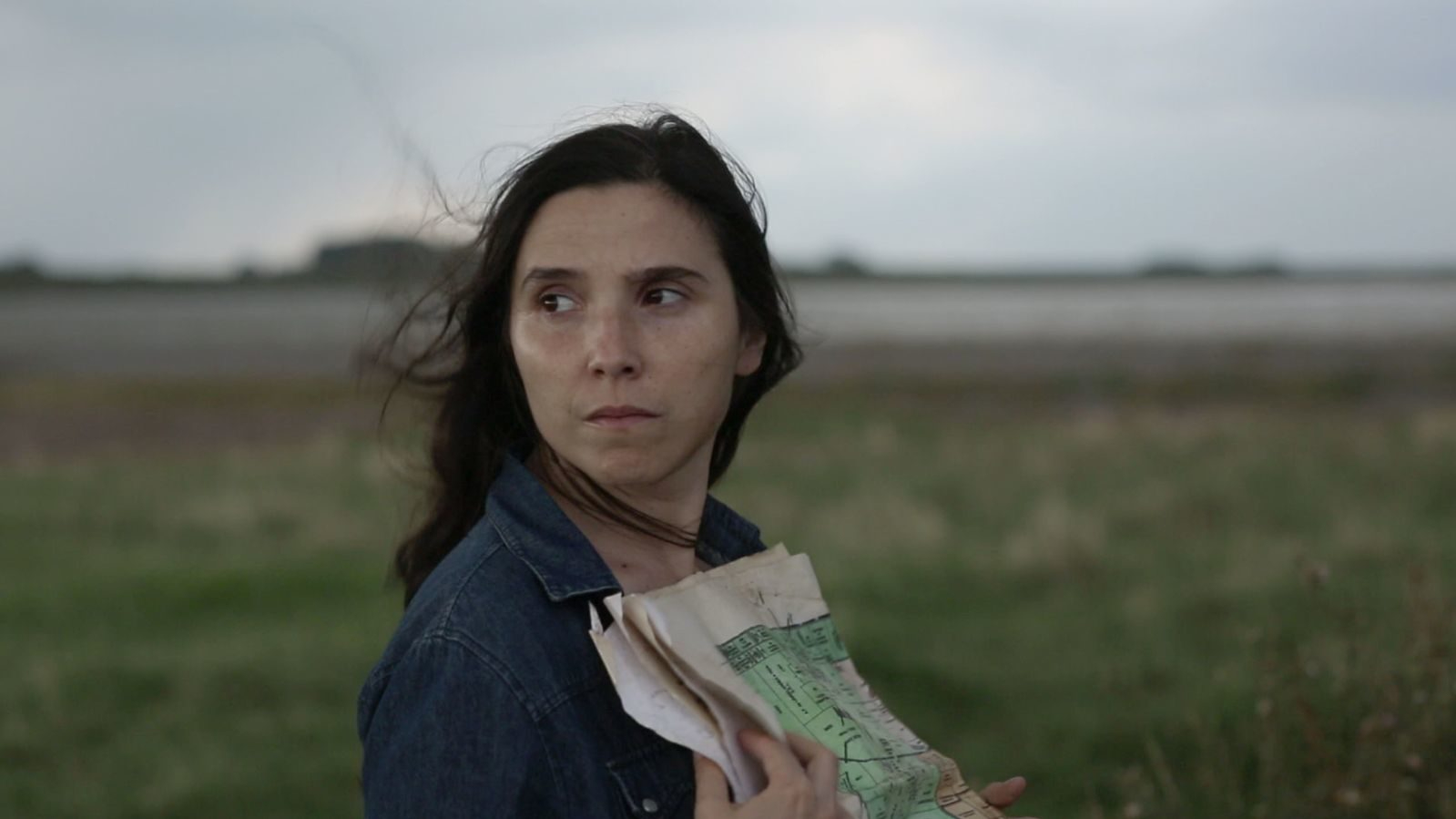When biologist Laura (Laura Paredes) goes missing, boyfriend Rafa (Rafael Spregelburd) and Ezequiel ‘Chicho’ (Ezequiel Pierri) embark on a search to find her. A sequel of sorts to 2011’s Ostende, Argentinian director Laura Citarella’s Trenque Lauquen is an enigmatic, semi-absurdist puzzle that defies the allure of narrative solution in favour of the liberation of loose ends.
Beginning, as good mysteries often do, in the middle of the story, Laura has already vanished with Rafa and Chicho at a loss to her whereabouts or indeed her motives for disappearing. Neither seems concerned that she has been abducted; the fact of Laura taking Chicho’s car suggests that she has left of her own volition, while Rafa is convinced – or at least convincing himself – that she is in deep researching a new orchid and will re-emerge once her work is completed.
However, a note from Laura that Chicho finds and hides from Rafa when they recover his car suggests that Chicho knows more than he is letting on. From here we learn in flashback that Chicho and Laura recently embarked on their own secret project that may have led to her disappearance. While researching extraordinary historical women for her radio show, Laura discovers a letter hidden between the pages of a book. Sharing her discovery with Chicho, they soon find more books in the Trenque Lauquen library, uncovering the incredible story of an affair conducted between a school teacher and her lover.
Like the letters slotted between the pages of carefully selected books, these flashbacks are inserted in key moments of Part 1’s narrative, revealing more about Laura’s obsession as well as her and Chicho’s developing affair of the heart. As they read the letters, Chicho begins to imagine himself in the role of the teacher’s lover, though intriguingly the teacher is played not by Paredes but by the director herself. The epistolary narrative refracts, rather than reflects, that of Laura and Chicho; we are forever looking at the distorted image of the surface of disturbed water.
Defying our expectation to concluding the hanging loose ends of part one, Trenque Lauquen’s second half instead picks up on a second, ostensibly unrelated mystery only passingly referred to in its first part. There is surely a conscious play here on the film noir device of two seemingly unconnected mysteries invariably becoming strung together in the end; Citarella teases us with this, offering only the barest thematic and affective connections. Indeed, the film’s digital photography is consciously anti-noir, while the chapter-based structure, whose headings always interrupt speech or musical cues, at once exceptionally-well constructed and at the same time calculated to frustrate conventional formal rhythms.
A ‘spectre’ that appears on the surface of the eponymous lake (‘trenque lauquen’ meaning circular lake), thought to be a strange aquatic creature, possibly an extra-terrestrial or even a severely malnourished boy becomes a new focal point for Laura, who drops the letters and begins chasing the nature of this weird being. Theremin music – which is notably first heard towards the end of Part 1 – toys with sci-fi cliché as Citarella knowingly tips her fable towards the absurd, all the while skilfully shuffling new cards into the narrative deck, recontextualising their meaning.
Those refractions on the surface become ever more distorted, while the motif of water becomes increasingly present. Trenque Lauquen’s ending is as enigmatic as it is inevitable; the mystery remains unsolved, yet somehow ended, cathartic satisfaction within grasp but out of reach. Like the best film noir, with which this in undoubtedly in dialogue, Trenque Lauquen is a film about affect and textural cohesion moreso than logic and catharsis.
Christopher Machell

